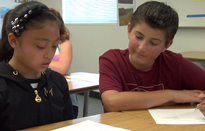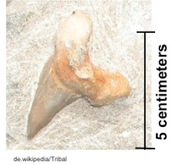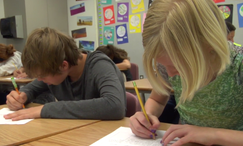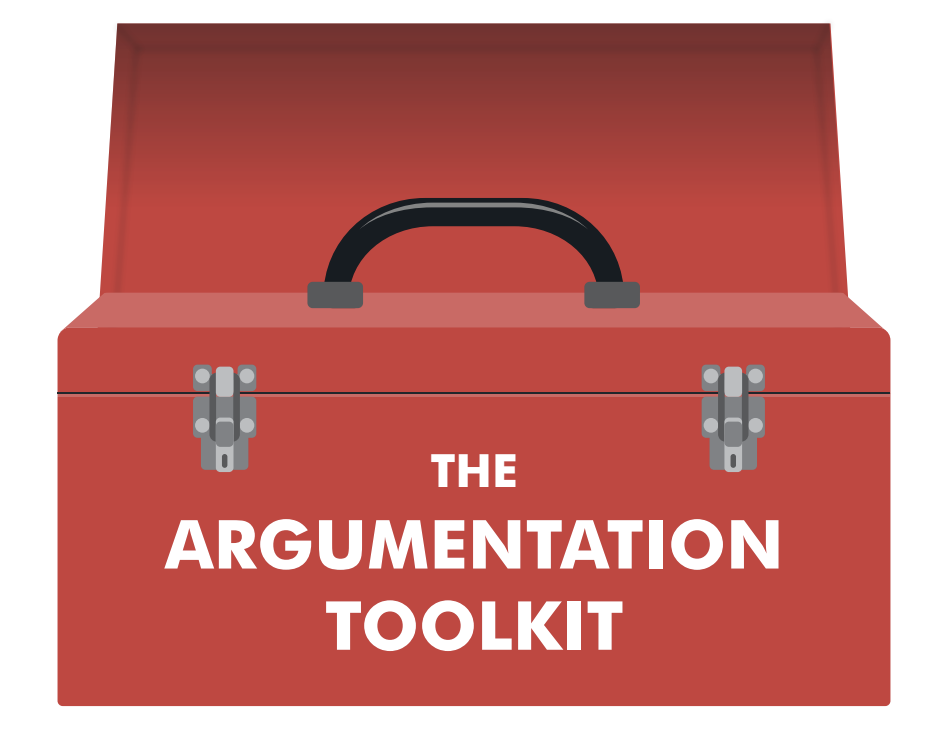What is the role of reasoning in a scientific argument?
Introductory Module Session 3
Session Goals:

- Teachers will develop an understanding of argumentation as a social process in which students build, question and critique claims using evidence and reasoning.
- Teachers will be introduced to the Reasoning Tool as an instructional activity that supports students in articulating the link between their evidence reasoning.
- Teachers will design a new lesson or revise an existing lesson to integrate argumentation into their science instruction.*
- Teachers will identify areas of argumentation that are challenging for their students.*
*Note: These final two goals are only applicable if the module is implemented as multiple sessions
Session Slides:
Introductory Module Session 3 PDF
Agenda:
*Extension discussion – Try it with your students!
- Video & Discussion: Using the reasoning tool
- Activity: Writing with the reasoning tool
- Activity: Analyzing student writing
- Session takeaways
*Extension – Try it with your students!
*Extension discussion – Try it with your students!
Share your experience:
- Share the lesson you developed to focus on competing claims, as well as any student artifacts you may have.
Discussion Questions:
- What went well with the lesson? Why do you think it went well?
- What was challenging with the lesson? Why do you think it was challenging?
1. Video & Discussion: Using the reasoning tool
Watch the video below, which provides an introduction to the reasoning tool.
Discussion Questions:
- What challenges have you experienced, or could you imagine experiencing, supporting your students in articulating their reasoning?
- What different ways could you envision using the reasoning tool to encourage students to explain the link between their evidence and claim?
2. Activity: Writing with the reasoning tool
The task:
- Use the reasoning tool to explain how these pieces of evidence support the claim that the fossil tooth came from a prehistoric shark.
- Once you have completed the task, share your work with another person and give each other feedback.
| Evidence | This evidence matters because… | Therefore… |
|---|---|---|
| The fossil tooth is sharp. | The fossil tooth came from a prehistoric shark, which is related to sharks that live today. | |
| The fossil tooth was found in sandstone, which is a type of sedimentary rock. |
Discussion Questions:
- What was your experience in using the reasoning tool? What did you find helpful? What did you find challenging?
- How can you envision your students engaging in this activity? What would work well? What challenges would they have?
3. Activity: Analyzing student writing
The task:
- Read through the students’ writing and underline the reasoning in each argument
- Rank the sample student writing from strongest (1) to weakest (4)
- Once you have completed the task, share and discuss your ranking with another person
Discussion Questions:
- How did people rank the student writing? Why?
- What were some of the strengths and weaknesses of the student work?
- How might the reasoning tool help students with this task?
4. Session takeaways
- Reasoning explains how evidence supports a claim, often incorporating science ideas and concepts.
- Including reasoning makes an argument more convincing.
- Encouraging students to write and talk about reasoning supports them in building understandings of the science ideas.

*Extension – Try it with your students!
The task:
- Develop or revise a lesson to encourage students to write about reasoning. This lesson could incorporate the reasoning tool or it could be another type of activity, such as encouraging students to explain why they sort cards as they do during an evidence card sort.
- For the next meeting, bring the lesson you developed, as well as potentially student artifacts (such as writing or a video clip) of students engaged in this.
View Other Sessions
Introductory Module Agenda
| Session Name | Description | Length |
|---|---|---|
| Session #1: What is the role of evidence in a scientific argument? | This session introduces the four areas of argumentation that students need extra support in, and then focuses specifically on the role of evidence. | 45 minutes |
| Session #2: How does considering competing claims support students’ use of evidence and reasoning? | This session illustrates how engaging students in competing claims supports their use of evidence and reasoning, and also deepens their understanding of the science content. | 45 minutes |
| Session #3: What is the role of reasoning in a scientific argument? | This session focuses on the role of reasoning, and introduces an instructional strategy that can help students incorporate reasoning into their written arguments. | 45 minutes |
| Session #4: How do we support students in interacting with peers during argumentation? | This session highlights the interactive nature of argumentation using an activity in which students analyze data with peers. | 45 minutes |

